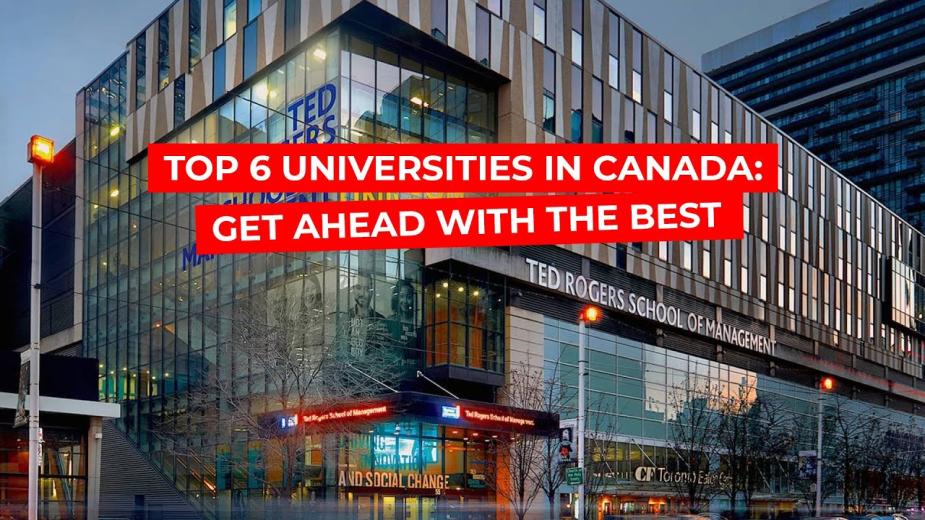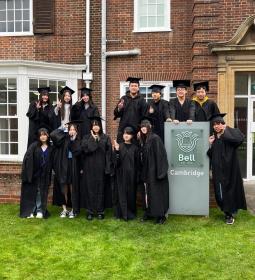In Canada, there is no traditional concept of a "national education system" - this issue is dealt with by the relevant government agencies in each province. Today, the Canadian education system includes over 100 colleges and universities , most of which are concentrated in the provinces of Ontario and British Columbia, where most of the population lives.

What is the structure of higher education in Canada?
There are two main types of institutions of higher education in Canada: universities and colleges. Universities offer academic programs including bachelor's, master's and doctoral degrees. Colleges focus on hands-on learning and training in specific occupational skills, providing diplomas and certificates upon graduation.
Study Plan for Higher Education in Canada
In Canada, students have the flexibility to curate their study plans based on intensity, content, and focus, either gearing more towards theory or hands-on practice. The academic rigor ensures only the most dedicated students proceed, with nearly half of the initial enrollees dropping out by the end of the second year.
The academic year generally kicks off on the first Tuesday of September, running through to May-June, with some programs continuing throughout the summer. Courses are offered in English, French, or sometimes both.
The higher education system in Canada can be roughly divided into 3 levels:
- post-secondary education (postsecondary / undergraduate programs)
- higher education (bachelor / master / PhD)
- post-higher education (graduate / post-degree programs).
With a diploma of secondary education, the student can consider the following study programs:
Certificate (Sertificate)
A 1-year program (up to 30 credits) aimed at obtaining highly specialized knowledge.

Diploma (Diploma)
A program designed for 2 years of study and covering a wider range of knowledge and skills (up to 60 credits).
Advanced Diploma
The program is designed for 3 years of study and includes an internship (paid / unpaid; up to 120 credits)).
Associate Degree
Analogous to half of a bachelor's degree: 2 years of study (up to 50 credit points), after which the student can transfer to the senior year of the university in the chosen specialty (as a rule, for the 3rd year).
Next is the bachelor's degree, which can be obtained both at the university and at the college, if the latter is eligible for teaching degree programs.
Here we can already talk about the concept of "higher education", which includes three levels of academic training:
- undergraduate (UG / Bachelor degree)
- Master's degree
- doctoral studies (PhD).
Bachelor's Degree (Undergraduate / Bachelor Degree)
The program for the chosen specialty for a period of 4 years. The next stages of higher education - Master's degree and PhD - can be obtained only at universities.
Master Degree in Canada
Master's programs in Canada span 4-5 years for a single specialty. The constant cooperation between universities and industries provides opportunities for postgraduate students to improve their knowledge, gain practical experience, and even immerse themselves into new specializations.
Compared to the USA, Canada is featured by lenient immigration policy. Thus, foreign students are allowed to stay in the country for 1-3 years post-graduation to work in their field. Upon gaining permanent residency, they can then pursue professional migration. Moreover, universities provide dedicated career guidance centers and departments to assist students in job placements. All Canadian degrees are globally recognized and hold international value.

As an interesting fact, foreign students can work up to 20 hours per week during term and full time during breaks and vacation. So, students obtain an additional source of income, allowing to earn on average 9-15 CAD$ per hour. Notably, students from Manitoba might be eligible for a 60% tuition tax deduction.
Doctorate of Science (PhD)
Research activities for a period of 4 to 7 years, ending with the writing of a dissertation. Possible when receiving the first and second stage of higher education (UG and Master degrees).
The term "post-graduate education" can be applied to the following programs. As a rule, they are enrolled with a bachelor's degree (as well as a master's degree). Some specialties may require work experience.
Graduate Certificate and Post-Degree / Post-Baccalaureate Diploma
These programs are aimed at improving the existing qualifications obtained in the framework of the bachelor's degree, or at retraining and obtaining an additional (new) profession.
Certificate programs are designed for 1 academic year, while diploma programs are for 2 years, which include practice (Co-op element). These programs are located between bachelor's and master's degrees and are more focused on obtaining practical, applied knowledge than research (for example, in the case of master's and doctoral studies).
These programs can be offered at both colleges and universities in Canada.
Requirements for Admission to Universities in Canada
Prospective students aiming for higher education institutions in Canada must have:
-
Completed secondary education.
-
Proficiency in English (usually TOEFL scores of 86-88 iBT or IELTS scores of 6.5-7) or French (DALF or a university's internal test).
-
A filled-out application.
-
A valid passport or ID, and in case of under 18 years old, foreign students are required to apply for services of a guardian agency.

General recommendation to foreign students concerns entering in preparatory courses such as the Foundation Programme, allowing to improve language and academic skills. Taking this program may contribute to enrolment on the second year of a Bachelor's degree program at some institutions. So students can save time and finance.
Cost and fees for Higher Education in Canada
In comparison with the USA, Europe, and the UK, the cost of higher education in Canada is more available to foreign students. On average, tuition fee accounts for 20,000 CAD per academic year, without textbooks and educational materials.Costs for accommodation depend on the city, for example studying in Toronto is more expensive. Foreign students are provided with accommodating options to choose - on-campus residences, a host family, or shared apartments.










